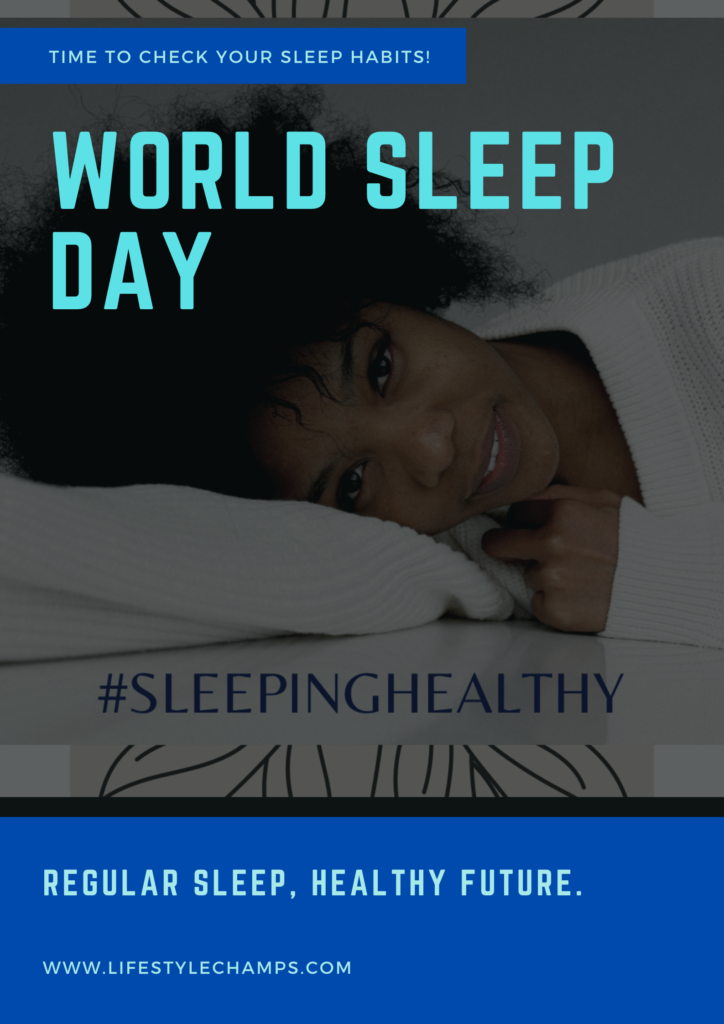Sleep hygiene: An answer to disrupted sleep?
By Ore Taiwo Makinde.
My sleep was disrupted. I had quite a challenging experience a few nights ago. It was an unpleasant experience because my sleep was disrupted. Growing up, my mum always alluded to the fact that she could not sleep if there was a single mosquito in the room. She must have passed some of her genes to me. I realise that for me to settle down comfortably at night, the room must be clean, the beds properly laid, wardrobe doors closed and the lights put out. In addition to this, there should be no hint of noise.
You can, therefore, imagine my consternation when I was awoken a few nights ago by a low, creepy sound. The person beside me, however, did not move an inch. Apparently, my son had made his way to the master-bedroom leaving the door open and a roach took advantage of the opportunity to crawl in and disrupt my sleep! Have you ever experienced this? Unfortunately, I could not go back to sleep until I had ransacked the room and ended the torment it created. I have often wondered about the economic importance of this not-so-interesting insect.

Masterclass on sleep deprivation. We all have varied experiences of sleep disruption which is a major cause of sleep deprivation. A few weeks ago, I wrote about the effects of sleep deprivation on our health and I also had the opportunity of speaking with a group of professionals on how to value sleep. During this masterclass session, we talked about the intentional and inadvertent causes of sleep deprivation. We were made to realise that the body has a sleep-wake cycle that is controlled by our exposure to cues in our environment, our emotions, diet as well as physical activity.
So what is sleep hygiene? This refers to all lifestyle-related activities or adjustments which support or improve our chances of having a restorative sleep. Several individuals depend on sleeping pills to sleep at night. However, this should be avoided except it was prescribed by your physician. It is possible to make adjustments to your sleep pattern whether you regard yourself as a morning “lark” or a night “owl”.
The morning lark usually is an early sleeper as well as an early riser. They ‘get up and go’ every morning and feel more productive working during the day while the night owl is a nocturnal person who feels more productive working at night. They tend to retire to bed around or after midnight, waking up much later the following morning. However, the body adapts to either pattern of sleeping behaviour over time depending on our varying backgrounds and our exposure to constant demands from work and family members.
Tips on sleep hygiene. Here are a few invaluable tips to enable us to improve the duration and quality of our sleep:
Reserve your bed for sleep and sexual intercourse only. Avoid studying on your bed or watching television in your room. Your body will eventually learn that sleep is the main oversight of your bedroom and adapt to it.
Eliminate or minimise noise. This may perchance come from a neighbour’s generating set or from neighbours making a fuss. You would need to approach them respectfully and negotiate what is favourable for both parties or otherwise shut your windows and doors tightly. If your sleep is disrupted by your partners’ snores; asking them to ‘turn over’ can help to curb this.
Avoid exposure to bright light spectrums such as blue and white fluorescent bulbs within 1-2 hours of bedtime if your sleep is easily disrupted. This could come from your TV, computer, phone, security lights or alarm lights all of which stimulate alertness. Use warm yellow bulbs for your bedside lamp if you need to read just before falling asleep.
Ensure adequate hydration during the day. Avoid too much fluid at night otherwise, you may need to get up severally to empty your bladder. Alcohol and diuretic drugs also lead to this.
Caffeine is known as a frequent disrupter of sleep although a number of individuals have no problem drinking it. Caffeine can be found in some analgesics, beverages and soft drinks. It, however, stimulates mental alertness which delays the initiation and maintenance of sleep.
Avoid late meals which can lead to indigestion and gastric reflux as well as inadvertent weight gain and other lifestyle-related diseases.
Mitigate planning or ruminating at night. Rather, draw up your schedule during the day. Engaging in difficult discussions is also bound to keep you awake longer and cause sleep delays. Save such conversations for later as well as distressing videos or news.
Engaging in moderate physical activity is a precursor to a night of restorative sleep. An average of 150 – 300 mins weekly in pulses of 30-60 mins on at least five days of the week is recommended.
Active relaxation enhances restorative sleep. This entails a warm bath, meditation and guided imagery of pleasant thoughts and memories. Warm clothing and blankets may be relevant in the event that the temperature drops.
In conclusion, many of the sleep challenges we have can be solved with the aforementioned lifestyle adjustments. Let us value our sleep in order to minimise the risk of lifestyle-related illnesses associated with sleep deprivation.
Dr Ore Taiwo Makinde is a Consultant Family Physician and certified Lifestyle Medicine Physician. Visit https://lifestylechamps.com for more articles and insights.


6 Comments
My sleep is disrupted several times during the night by the urge to micturate, if I drink water after 5pm. I only pass urine 2 or 3 times during the day, but every 2hours during the night.
If I drink anything containing caffeine in the afternoon, I will be awake for about an hour at about 3am.
Thanks so much for your feedback. Keeping hydrated during the day is key. However it would be beneficial to avoid fluids after 5 pm in your case. You can keep a bottle of cool water by your beside at night in case you wake up suddenly feeling thirsty. With this, you are unlikely to disrupt your sleep since you would avoid getting out of bed.
In addition, avoid caffeine-containing products anytime after 12 mid-day to prevent sleep disruption.
Very useful tips.
Thank you.
Thank you! Very educative. I currently struggle with sleeping at night. I hope these tips helps
Thanks for the feedback. We believe the tips will help. They have been derived from research findings. Please try them. God bless.
Comments are closed.